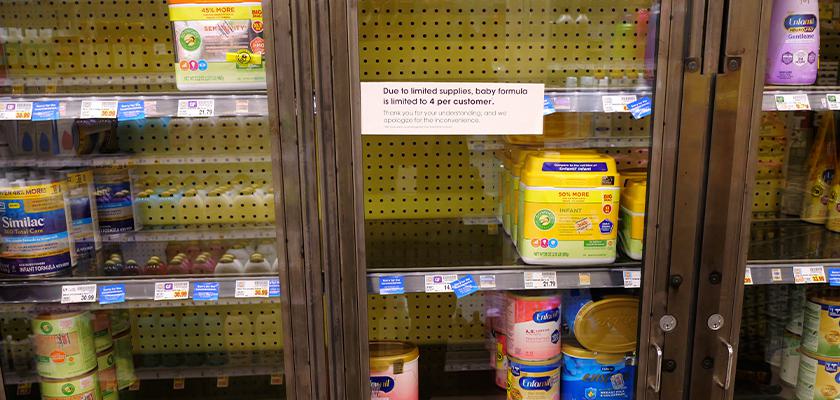The Alabama Department of Public Health (ADPH) is addressing the recent nationwide shortages of baby formula.
Due to supply chain issues and a recall of products by one of the nation’s largest producers of infant formula, the country is experiencing a shortage of the product.
The problems began last year as the COVID-19 pandemic led to disruptions in labor, transportation and raw materials — economy-wide issues that didn’t spare the formula industry. Inventory was further squeezed by parents stockpiling during COVID-19 lockdowns.
Then in February, Abbott Nutrition recalled several major brands of powdered formula and shut down its Sturgis, Mich., factory when federal officials began investigating four infants who suffered bacterial infections after consuming formula from the facility.
Although both ADPH and the Alabama Chapter of the American Academy of Pediatrics (AL-AAP) strongly encourage breastfeeding, there are many reasons for alternative forms of feeding, including formula.
Katrina Skinner, MD, FAAP, AL-AAP president, advises families who rely on formula not to dilute it with extra water, which can result in dehydration, weight loss and seizures. She also said families shouldn’t make their own formula, use cow’s milk or give babies plant-based milk because those options aren’t nutritionally sufficient. Parents of babies with allergies and sensitivities that require them to use a specific formula should call their doctors for advice. Skinner said donor milk is safe so long as standard guidelines are used. She recommends that parents use donor milk banks, where the milk is screened to make sure it is okay for consumption.
Many women have made at-home solutions when breastmilk is not available, long before any shortages.
While some doctors have recommended certain homemade recipes in the past, most doctors are cautioning against the homemade formula due to the risks involved. Not all formula recipes are created equal.
Many do-it-yourself formula recipes are made from cow’s milk and granular sugar that may be difficult for young babies to digest. They also lack the specific vitamins and proteins found in breastmilk and FDA-approved formulas that are needed for basic nutrition.
“Particularly for small babies, many of these formulas and mixtures that are found online don’t contain even the most basic nutrient mixes that babies need to survive,” said Dr. Steven Abrams, a pediatrician at the University of Texas at Austin. Abrams also stressed that parents should never dilute infant formula.
Discussing formula options with your child’s primary care physician is highly recommended due to the unique nature of each child’s dietary requirements. The ADPH is also warning parents against buying formula from overseas sources.
“Families should discuss safe alternatives with their health care provider,” said Dr. Stubblefield. “Families should also use caution when purchasing formula from internet sellers outside of well-known distributors. Purchasing formula from overseas can be dangerous as these formulas are not regulated by the FDA.”
Skinner said her office in Fairhope keeps samples of formula that they receive from medical representatives, and other doctors may have some on hand as well. ADPH and the AL-AAP recommend that parents contact their health care providers to find out if samples are available, as well as check with other potential sources. Both organizations encourage families to try alternative brands of infant formula (including store brands) if their preferred brand is not available. Other options include switching to a ready-to-feed product or liquid concentrate if powdered formula can't be located.
Last week, the FDA provided an update on its work to increase the availability of infant and specialty formula products.
More information can be found at: https://www.hhs.gov/formula/index.html
To connect with the author of this story, or to comment, email craig.monger@1819news.com.
Don’t miss out! Subscribe to our newsletter and get our top stories every weekday morning.










